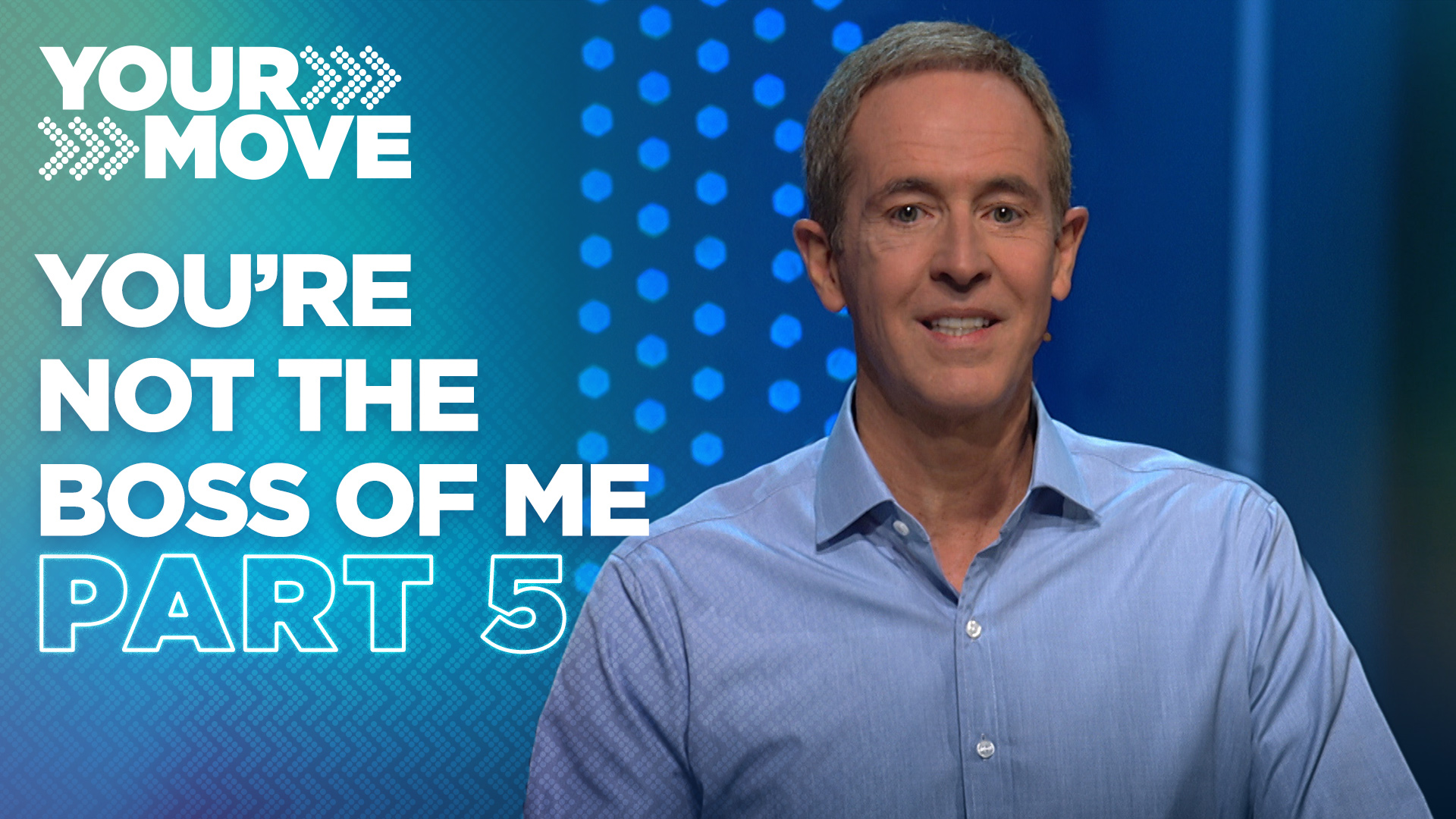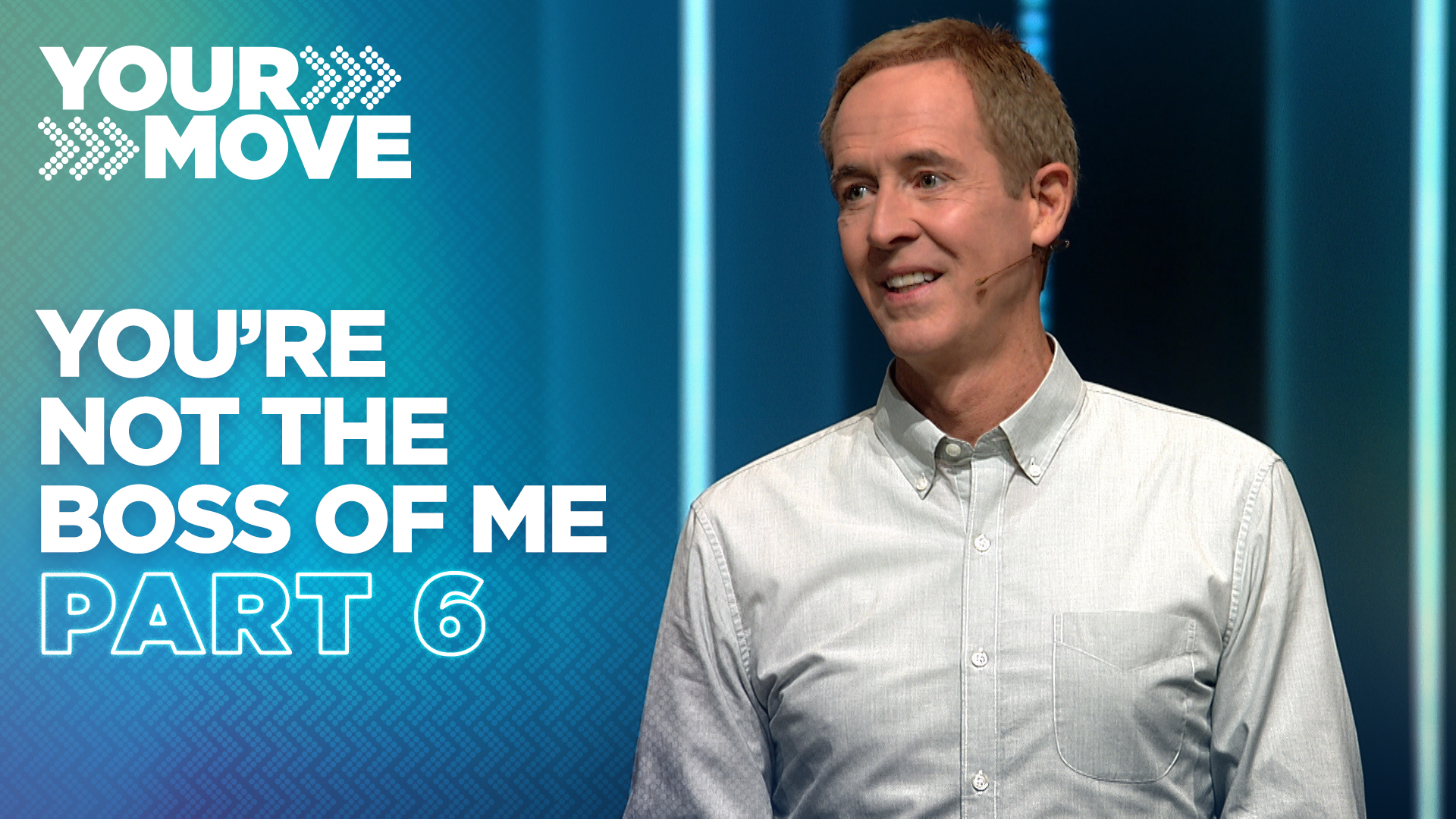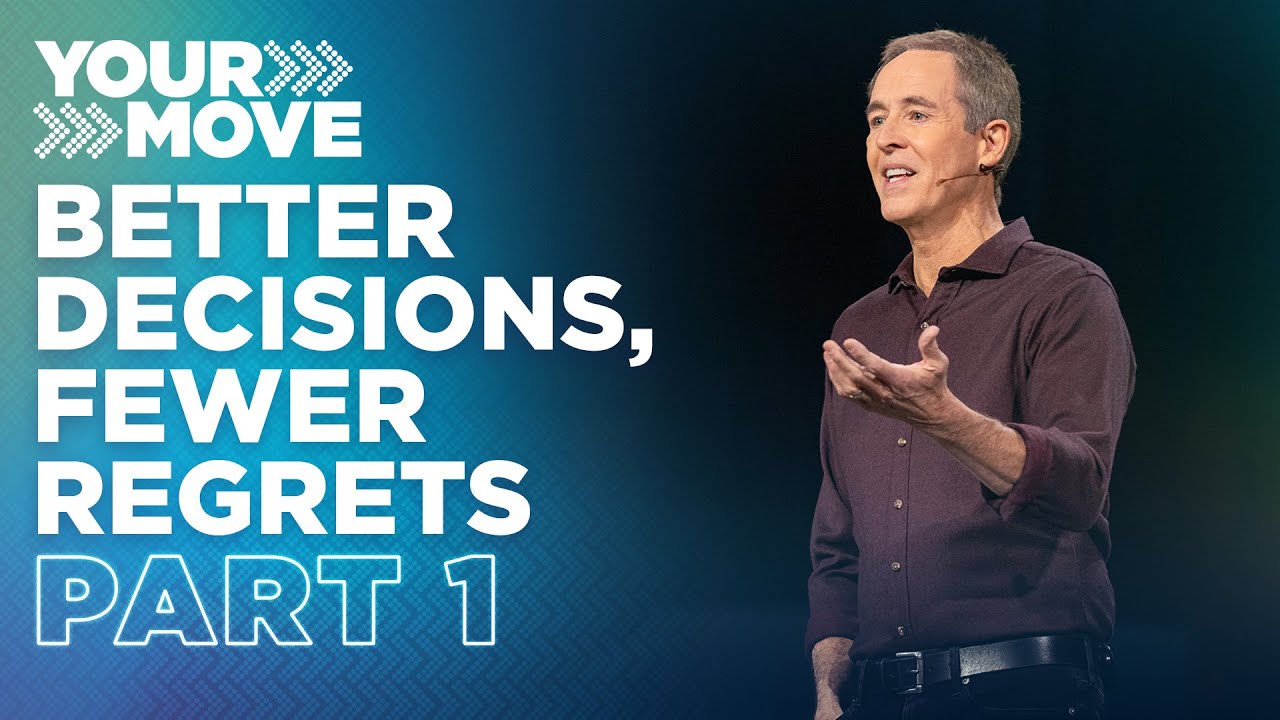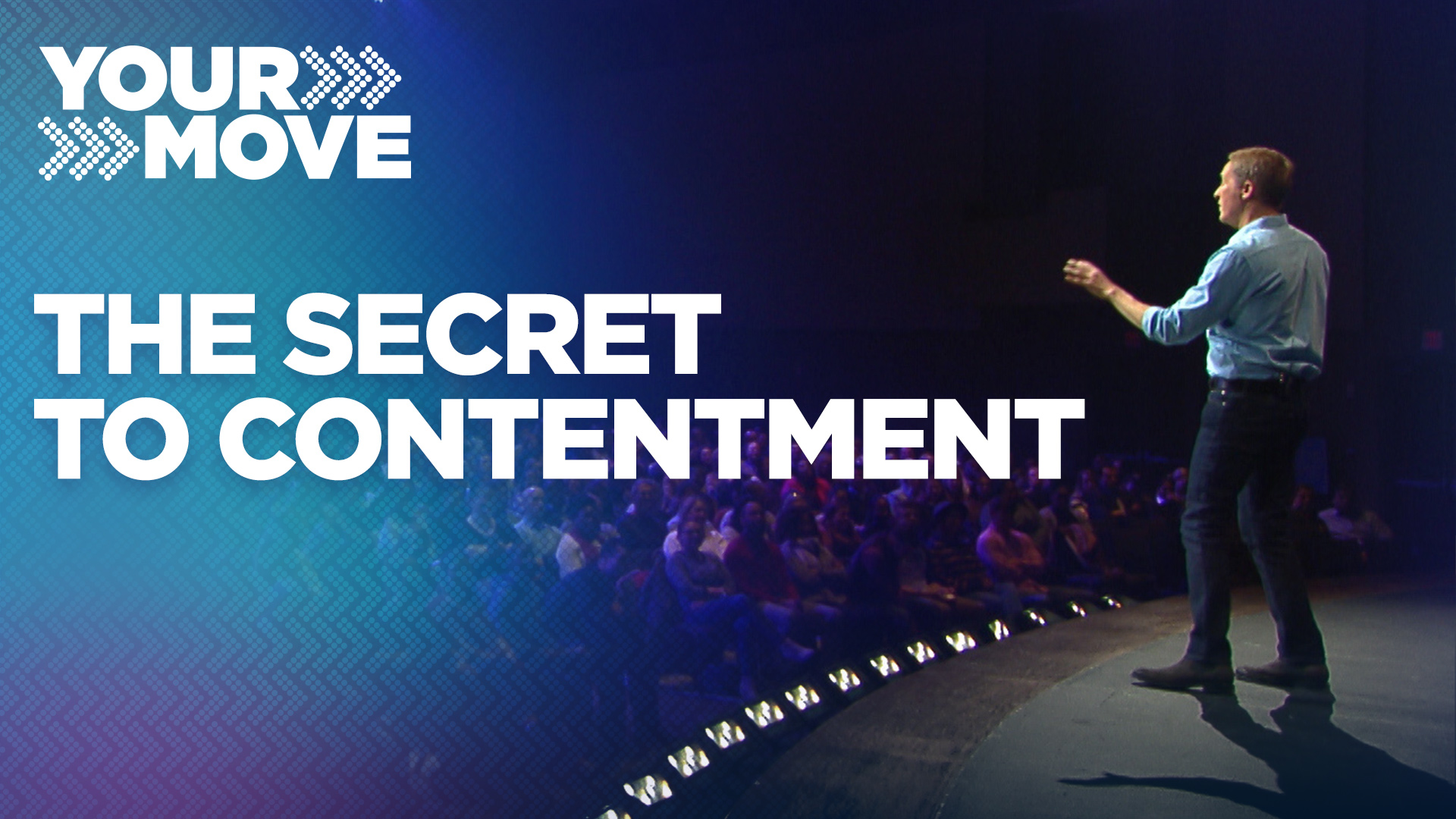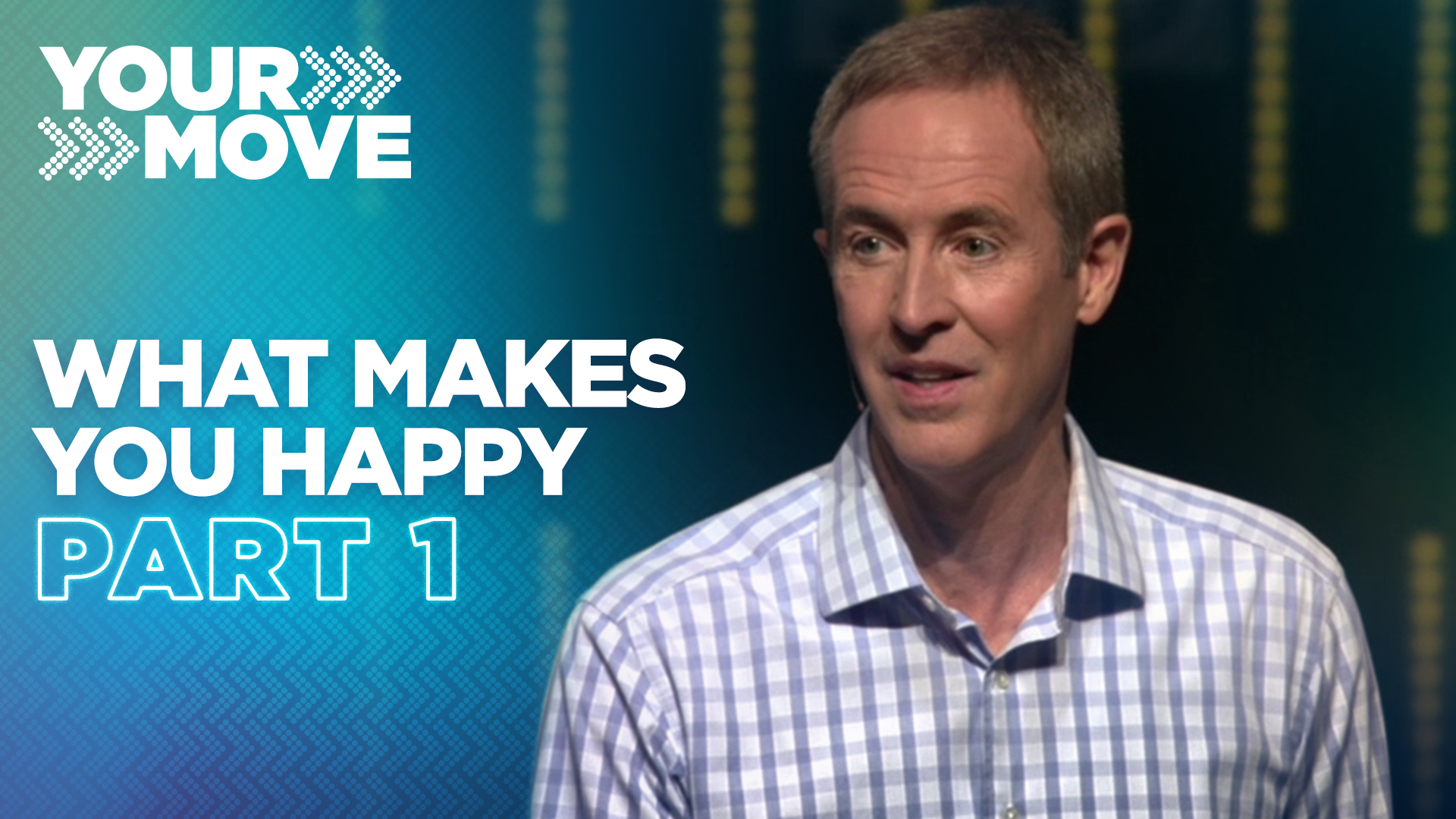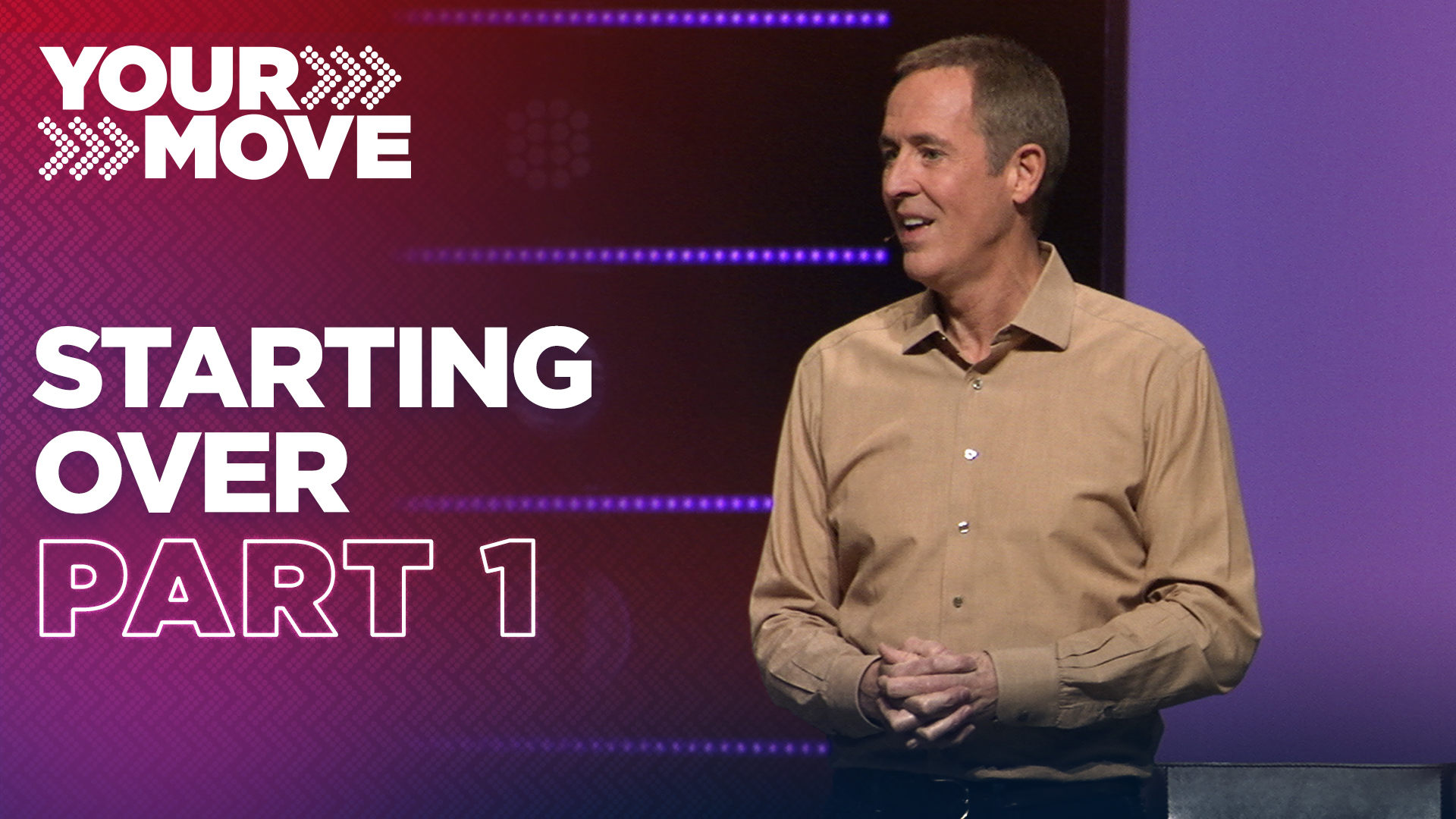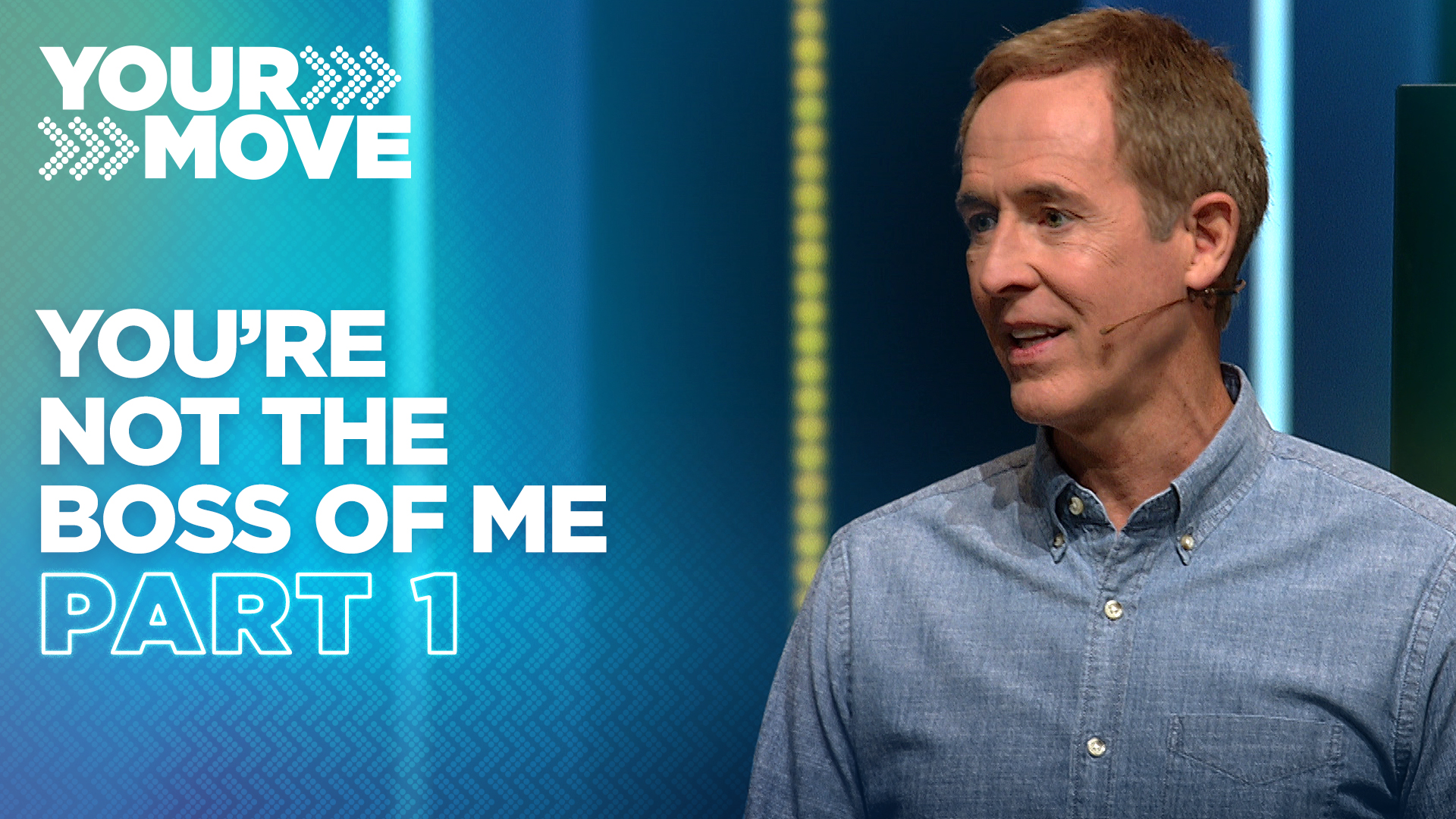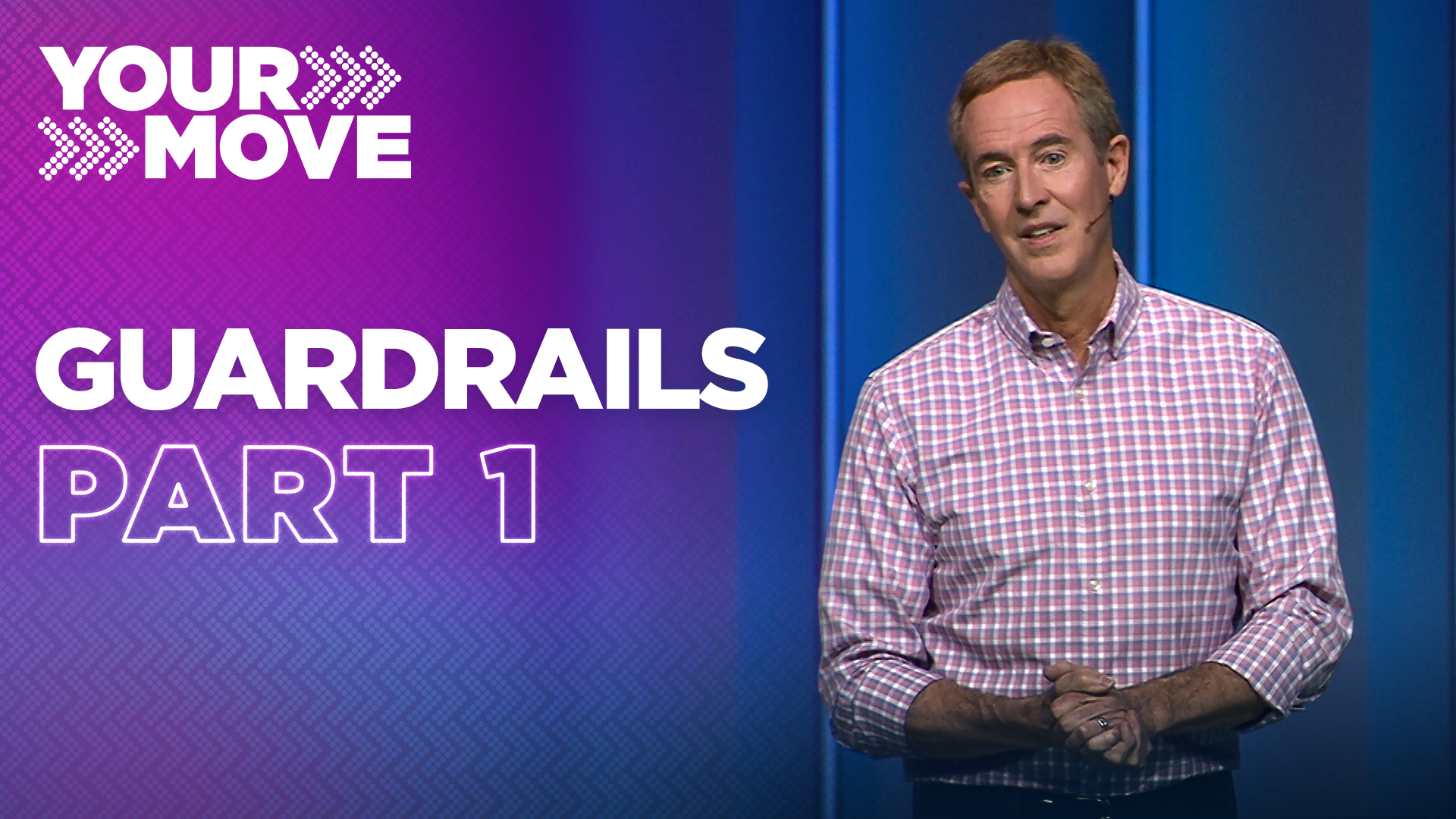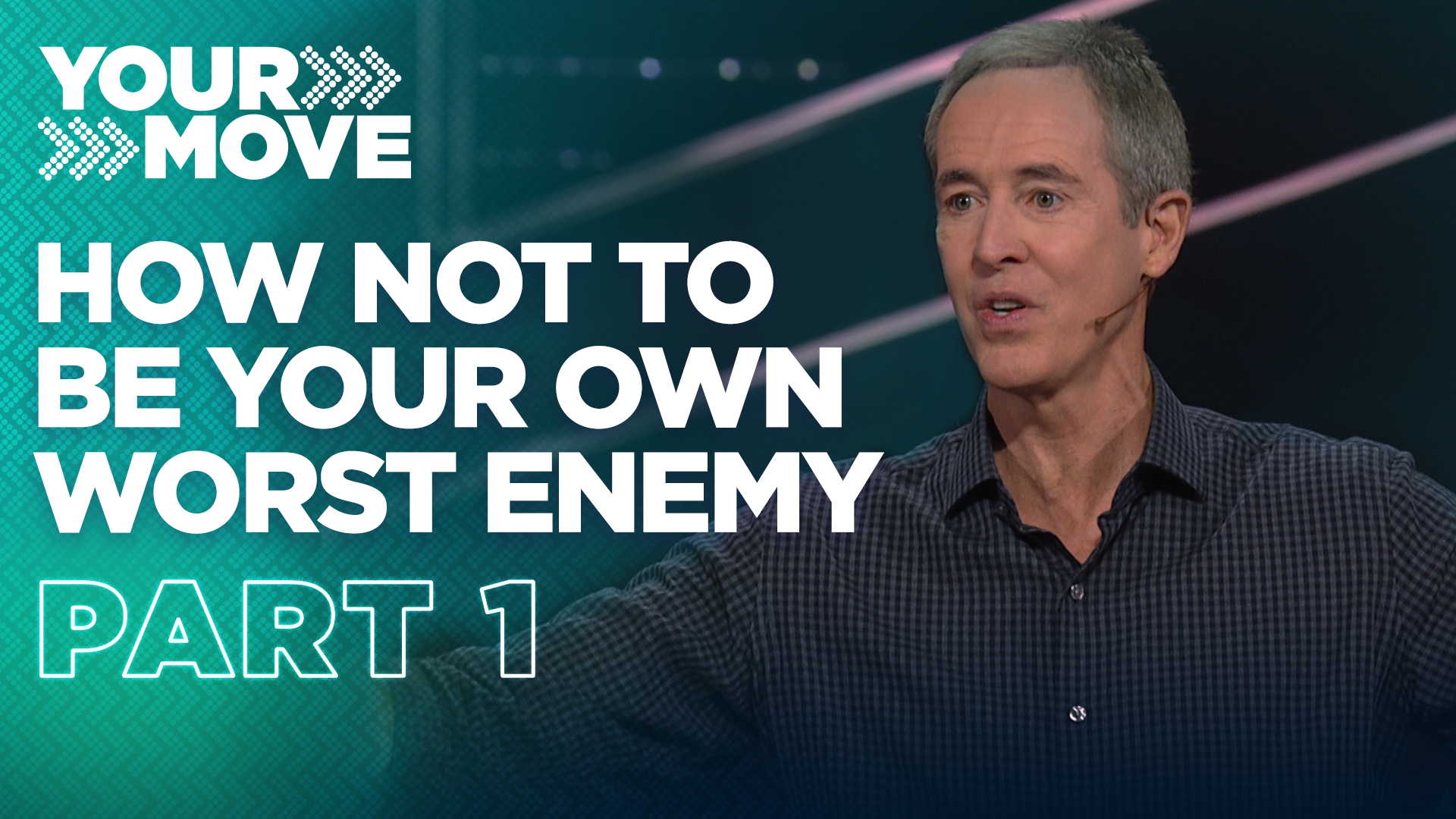Anger shows up when we’re not getting what we want. But would it lose its grip if we looked beyond the things we want—or even deserve?
- Describe your relationship with anger. Do you tend to shout out or shut down?
- What and/or who triggers your strongest feelings of anger? Explain.
- Think about a recent situation in which you found yourself becoming angry. What did you want that you didn’t get?
- Wisdom leads to humility. What would it look like to practice humility in a situation that typically angers you?
- Why is it so difficult to practice humility when we’re angry?
- What can you do the next time you feel anger bubble up inside of you? What are some warning signs to watch out for?
NOTE: The following content is a raw transcript and has not been edited for grammar, punctuation, or word usage.
Anybody here been a victim of road rage? Anybody, anybody, have been a victim? Yeah. Actually, more of you than you know, the reason you didn’t raise your hand is you don’t know what it is, okay? But road rage isn’t… Doesn’t mean somebody, some angry person, gets out of their car, and marches back to your car in traffic, and beats on your windshield. That is road rage, but it’s broader than that. Road rage, is really… I’ll just give you the definition, since we’re talking about it, aggressive or angry behavior exhibited by a driver, bet you knew that. But here’s the broad definition. So, more of you have been a victim, hopefully not a perpetrator, but a victim of…
[laughter]
Or maybe a perpetrator, I didn’t ask you to raise your hands, maybe we should go back.
[laughter]
Anyway, behaviors include rude and offensive gestures. So, most of us have been… See… Okay, verbal insults, physical threats, or dangerous driving methods targeted toward another driver or pedestrian, yeah, in an effort to intimidate or release frustration. And the thing that’s so horrible about road rage is that it’s focused on absolute strangers. People who are experiencing road rage they’re mad at someone they don’t even know who it is, they don’t even know if it’s male or female half the time because your windows are so tinted, right?
Now, a percentage of you, a percentage of us, have experienced or been on the giving side of some sort of road rage, but probably only a small percentage, but all of us have some sort of rage on the inside of us, all of us have some level of anger. We don’t like the word anger because that doesn’t sound very sophisticated, we’re very sophisticated people. So, we say, “No, no, no, I don’t have rage and I don’t have anger, I just have frustration. I’m just… I’m not angry, I’m just… I’m frustrated.” Frustration is… Sounds so much nicer, frustration is, “You know what, there’s something wrong out there and I’m just responding in here, but it’s not me. I’m not the source, I’m just responding to something out there, and whatever it is out there, it just frustrates me but I’m not angry, I’m just frustrated.
And so while you’re trying to figure out the difference between anger and frustration, I wanna go ahead and catch you up on what we’re talking about in this series, and then we will come back to that in just a minute.
We’re in the middle of a series, actually Part Four, of a six-part series called You’re Not The Boss Of Me, and we’re talking specifically… This is kind of a how-to series, how to say “no” to the emotions that compete for control because all of us have emotions that compete for control of our mouth and they compete for control of our moods. And Jesus said that the stuff that comes out of us or exudes from us that oftentimes offends other people and puts us at odds with God because it puts us at odds with other people, it actually comes out of us and the reason that comes out of us is because it was in there to begin with, and the things that come out of us according to Jesus, actually he uses the word heart, it comes from our heart.
So, in this series, we are learning to monitor our hearts because from your heart, comes the issues of life that Solomon said from our heart, come to things that are both good, and both bad, and all of us are good at monitoring our behavior, that’s how you got here today, that’s how you got married, you got a date, got a second date with the same person, you got a job, you’re able to keep your job, got a second interview, We’re pretty good at monitoring our behavior. But Jesus is encouraging us and drawing us into a way of life where we monitor our heart, we monitor what’s in there, and we monitor what we allow down in there because when our emotions in many in cases, take control things oftentimes get out of control. Whether it’s guilt, we talked about that. Or envy, we talked about that; Or insecurity, or fear. We’re gonna talk about fear next week. And today we’re talking about anger. And here’s what I know about you. This isn’t a religious thing, this is just a human thing.
Nobody wants anger to be the boss of them, right? I mean, you don’t want anger to be your boss. And nobody who loves you wants anger to be the boss of you, and you don’t want anger to be the boss of anybody that you love, or you have to work with. We’ve seen what happens when that happens. We’ve been on the other side of anger or frustration, or rage. And when we talk about anger, we’re not just talking about extroverted anger, people who lose their temper. You may never raise your voice, you may be more like me. You don’t lose your temper, but you’re still scary because your moodiness, your silence is deafening. Your silence is intimidating. Your silence is controlling and you pride yourself because you don’t ever extrovert your anger but you introvert, your anger and it has the same effect on the people closest to you. So whether you shove it down or whether you shut people down, anger is a bad boss. Unless, there is an exception to this. Unless it’s what I call, and maybe there’s a better phrase for this, what I call Crusader Anger. This is a good anger.
Crusader Anger is when somebody gets angry at an injustice in the world, or evil in the world, or a disease in the world and they finally get so frustrated and so angry, they step out and they say, “You know what, somebody needs to do something about this.” So they go to work. And as a result of Crusader Anger, some incredible things have happened in the world: Child labor laws, women suffrage, the Civil Rights Movement. We could go on and on and on. All over the world throughout history, there have been men and women who finally got so fed up with something that needed to change, they had kind of this Crusader Anger, and it drove them to bring about change. But, and this is where we pivot back to most of us, Crusader Anger reflects concern over what other people aren’t getting that they deserved. The frustration and the anger that drives us crazy and messes up our relationships and causes us to look in the mirror at times and think, “Why did I say that? Why do I think that? Why do I behave that way? Is the anger that comes from what happens when I’m not getting what I’m sure I deserve? When you’re not getting what you’re sure you deserve.
So there’s a parallel, there’s a similarity. One is constructive. One, as you already know, is extraordinarily destructive.
Now, James, the brother of Jesus, who lived in the first century obviously, emerged after Jesus’ resurrection as a leader in the local church. And he writes this letter to Christians, primarily to Jewish Christians, and it is full of wisdom. And in this letter that’s called the Book of James, that you can find in your New Testament, in this book, James gives us a principle, and of all the principles, a life-changing principles in the world. I think there are two that are just so extraordinary, that if people can get their minds and hearts around these two ideas it changes everything, especially, relationally.
And James gives us one of these principles. So I wanna walk you through what James says. It’s gonna be a little bit offensive maybe, it’s gonna make you kind of push back a little bit and say, “I don’t know if it’s that simple”. But I’m telling you, if you, whatever age you’re in, wherever you are in relationships, if you will embrace this principle that James gives to us, it will do more to keep anger from ever becoming the boss of you than anything else you can do. And that’s a promise. Here’s what James says, he asked two questions. The first one is this. He says, “Who is wise and understanding among you?” And he’s not asking anybody to raise their hand. And I’ll explain why in a minute. “Who is wise and understanding?” Wisdom means who has insight. Wise people understand that life is connected. Wise people understand the past impacts the future and the present impacts the future, that what’s going on now, it’s gonna show up later, that life is connected.
So James says, “Okay, do you think you’re wise? Do you think you’re insightful? Do you know how to keep things in perspective?” He says, “If so, I wanna challenge you. Let me see your wisdom and let me see your understanding by the deeds you do and the humility that comes from wisdom.” Because wise people, this is so important, wise people are always humble. Because arrogance doesn’t make any sense. Arrogance is irrational. Arrogance flies in the face of everything we know about how the world works and how people are. He says, “So if you’re wise, I wanna see your wisdom and how you live your life, and it’s gonna be exported through your humility, because wisdom always leads to humility.”
Wisdom understands that’s what wisdom is, wisdom is understanding how the world works, how things are, that’s why the wiser you are, the more humble you’re gonna be because humility makes more sense, but humility is in fact humility is so powerful, but humility is not natural. Natural well, James tells us, he says, “but” he says, here’s the opposite of all that. “But if you harbor” that is you allow it to dock if you allow envy to dock, if you allow selfish ambition to dock, to harbor in your hearts, if you allow things that really fly in the face of reality, fly in the face of the way that the world really works envy, envy is… You know, it’s not fair.
Well life’s not fair, I mean, fairness ended in the Garden of Eden. Nothing has been fair since, right? How many of you can dunk a basketball, right, exactly, so it’s not fair, okay, but we tell our kids that all the time. And he says, “Look, and don’t boast,” his wording is a little funky here, “and don’t boast about it or deny the truth,” But if you harbor bitter envy you kinda keep it on the inside and selfish ambition, it’s all about you because people who lack wisdom, lack humility, and they make the world all about themselves.
Making the world all about you is not wise, making the world all about you doesn’t even make any sense, he says, “But if you’re stuck there, if you allow that stuff to harbor in your heart and it becomes the filter through which you live, he said, “You’re just denying the truth and wise people don’t deny the truth, wise people live in light of the truth.” And then he tells us, kind of what we already know. He says, “Because wherever… You find this stuff lodged in a heart wherever you find somebody deceived into thinking they’re more than they really are, and they lack wisdom, and humility for where you find this.”
He says “Where you find this envy and selfish ambition, there you find,” here it is, “there, you find disorder and every evil practice,” and again, this is kind of his complicated wordy way of saying what Jesus said that when things get lodged inside of us, they’re eventually coming out of us and where you have arrogance and a lack of understanding of how the world works and the way things really are, and how dependent you are on the people around you, and circumstances you had no control over, when you lose sight of that, and arrogance gets lodged, in your heart eventually, there’s going to be disorder and every evil practice. Because people who allow these things to get lodged in their heart are able to justify just about anything. What’s on the inside of you is coming for you. What’s on the inside of you is coming for the people around you. So at this point, James, is writing all this down and it’s like he pauses and thinks, “Okay I gotta get to the point.”
He’s kind of laid the ground working now he goes for his point, and now he tells us how to keep anger from lodging in our heart and how to keep anger from becoming the boss of us. But, he launches into this part of the discussion with another question. And here’s the question. He says, “So having said all that, think about this, what causes fights? I’ve said if you have wisdom you’ll have humility and humility leads to more wisdom and understanding about how the world works, and if you allow bitter envy and selfish ambition to lodge in your heart. Then there’s gonna be disorder and fights, and if you don’t believe me, then think about this where does that hostility, where do fights come from, what causes fights? What causes conflict? What causes fights?” He goes on, “and quarrels among you?” Now, this is a really interesting question. What causes it, what? Now he’s asking the question.
“What’s the root cause?” when some of you see this question, when some of us see this question we say, “Well, James you’re asking the question incorrectly. It’s not what, it’s who, it’s who causes fights and who causes quarrels. And I know the answer to that, it’s my mom, she will not mind her own business. I am an adult, I have my own family, and my mom just gotta tell me how to parent what to do. “It’s my ninth grade son. He knows everything, he knows everything, and the problem is, he might really know everything and everything I do is wrong, and he wins all the arguments and I feel like How did my ninth grade son getting control of our family?” “It’s my boss, the manager at work that she’s just, I don’t know, there’s something about her just grates on me”. So the problem is not a… What the problem is a who and James is like…
That’s why we’re talking about this because you’re wrong, it’s a what, it’s not a who. And as long as you think it’s a who you will never get to the root of the real what. He says, “Come on, who is wise and understanding among you? Don’t they really come from your desires that battle inside of you?” To which we say, “No, they don’t, you need to meet my boss then you would understand the source of my quarrels, you need to meet my wife. I don’t know, there’s just something going on. You need to meet my husband he used to be such a gentleman.” The source of the fighting and the struggles and the quarrels among you, the source is something going on inside of you.
They don’t come from his or her inability to see the world the way that you see it, even though that’s the way we often see it. Well, I think that the reason we struggle is because you won’t see things my way, and if I could just get you to see things my way, which of course is the right way, if I could just get you to see things my way, then we wouldn’t fight and quarrel and James says, “No, you don’t understand the root.” And as long as you think the source is out there, you’re never gonna deal with it and you’re actually gonna feed something ugly and dangerous in here.
Now let me pause and say this, this principle, this thing he’s teaching us, I’m telling you it is life-changing, that’s not hyperbole. It is relationship changing, it is relationship healing. In any relationship, in any relationship if both parties can embrace what James is teaching us and telling us, it changes everything. So let me read the verse again, “Don’t they come from your desires that battle within you?” And the answer is, yes they do every single time. Because the reason we fight and the reason we quarrel and the reason we’re angry is because there’s something we want, that we aren’t getting. There’s something we want that we aren’t getting. There’s something… I want respect from him, and I’m not getting respect.
I just want you to come home on time, because we talked about this 10 times, and you promised and you won’t come home on time. I just want you to give me a fair shot, I just want credit for my ideas. I’m upset and I’m frustrated and anybody that hears my story says, “You’re right.” But the root of it is not out there, the root of it is in here, because I’m not getting what I want, which I know how you respond, you respond the same way I do. But wait a minute, “But I earned it!” Right, you earned it. And you wanna get what you earned, right? Yeah, and you’re not getting what you earned, right. So you’re not getting what you want. Oh, yeah, but they promised!
I mean come on, they promised and they didn’t keep their promise. Right, so you want them to keep their promise? “Yeah.” So you’re not getting what you want? “Yeah.” Okay, but it wasn’t even just, what they did, anybody who heard my story, what they did wasn’t fair! I know, and you want what’s fair, don’t you? Yes, I want what’s fair. You’re not getting what’s fair are you? No, you’re not getting what you want. And I’m just telling you, if you can pause in the moment when the frustration or anger or rage or whatever word you wanna use, starts rising and you can pause in the moment and recognize, “You know what the problem is?” The problem is, part of the problem is, me.
Now, see parents, this should be so intuitive for us. If you’re a parent and you have two little kids or at any point, had two little kids, ’cause you’re driving, remember, you got one hand on the wheel and one hand on the back seat or two rows and you’re going, “Stop it, be quiet.” And your kids are back here negotiating going, “He, she, he, she.” And you’re going, “It doesn’t matter, it doesn’t matter. I don’t need to be the judge, I’m just the jury. You’re both guilty so be quiet and quit touching her and get on there.” Why? Because as the parent you know the problem isn’t really the presenting problem, the problem is there’s two kids in the back seat and they both want something and neither one of them are getting what they want.
And it’s like our Heavenly Father is going, “There’s a reason I asked you to call me Heavenly Father, ’cause you’re still like children.” And at the source, at the root of every single argument and quarrel you’ve ever had the source, the root, the source is not out there, it starts right here. You want something and you’re not getting it. And I’m telling you, the moment you begin to embrace this as a lifestyle, the temperature goes down and anger will no longer be the boss of you. It won’t control, as we’re gonna see your moods or your mouth.
Now James goes on, ’cause he knows he’s gotta say this, two or three more times ’cause it’s too easy to miss. He says, “You desire, but you do not have, so you kill.” We’re like, “Okay that’s gotta be hyperbole.” Well, it is, but it isn’t.
His point is this, and this is what should cause all of us to stop and at least consider whether or not this is true. His point is this, he’s saying, “Look if you don’t recognize, if you don’t recognize that the source and the root is in here, not out there, you will carry the potential to do things. You’ll carry the potential to take things to an unhealthy destructive extreme. As long as you think it’s him,” don’t miss this. “As long as you think it’s him and since you can’t control him, you will feel like you have an excuse not to control you.”
As long as I think it’s her and it’s a 100% her, then since, I can’t control her, I give up all reasoning when it comes to controlling me, because she deserves it, he deserves it, they deserve it, whatever it is. And James says, “Look I’m telling you the very thing that leads to murder it is inside of you.” Because what causes murder? Somebody wants something they can’t get any other way or they want something they can’t get and it drives them to murder. Somehow it justifies a response and they blame the other person. And James says, “Hey heads up, all of you wise people, all of you people that are wise and have understanding, that’s inside of you, that’s inside of you.” To think for a moment that you don’t have it in you to do something unhealthy, to another person in order to get what you want, don’t deceive yourself, be humble enough to recognize, “Oh my goodness, that resides in me.” Then he wraps up like this, he says, “Come on, you’re envious.” You’re envious and you can’t obtain. You want it and you can’t get there, you wanna break, you’re not getting the break. Everybody got theirs, you haven’t gotten yours yet. Everybody got in, you didn’t get in yet. Everybody drives one, you don’t drive one yet, everybody else has kids, everybody else, everybody else.
He says, “You want it and you can’t get so you fight and you quarrel.” You can’t get from him what you want, you can’t get from her what you want, you can’t get the approval, the acceptance. Just fill in the blank. We’ve all got that stuff. But his point is, come on, the source is not out there. The source is in here. We aren’t getting our way. We aren’t getting what we want. We’re like the kids in the back seat and our Heavenly Father is going. “Hey, stop it. I don’t wanna hear that, hey, no, no, no, no we’re not gonna talk about the details.” And so you can get on your side of the car, your side of the van, your side of the vehicle. And think for a minute “Wait a minute, What’s causing this? It’s not her.”
See again, if I shake you up, what comes out is what is in there. And you can’t say, “Well if you stop shaking me this wouldn’t be in here.” No. What comes out is what’s in there. And what does conflict do? Conflict, just shakes us up and what comes out. Oh my goodness, I just want my way, I want what I deserve. I want what was promised and of course, just to make sure you don’t hear me saying something I’m not, of course there are circumstances that should upset you. And of course being treated unfairly should upset you, and of course, not having a promise kept should upset you. But in the midst, in the middle of the conversation, as it dawns on you, mature, wise, people of understanding pause and say, “You know what, part of the problem is, not the whole problem, but part of the problem, my part of the problem, the source of the problem is I’m not getting what I want.” And I’m telling you, when you can own your slice of the argument pie, when you can own your slice of the argument pie, the temperature comes down and anger and rage and frustration will no longer be the boss of you.
So I wanna ask you a question, this isn’t a James question, this is just a me question. What is your relationship with anger? I know it’s an odd question, what is your relationship with anger? Do you let it boss you around. Do you allow it to get in control of your mouth or your mood? As I said earlier, I’m an introvert, so when I get angry, I just, I go in and my moods are paralyzing.
I’ve just had to learn, but what is your relationship with anger? And are you ready to put an end to that? Or let me ask it in a different way. If I were to ask your husband or your wife or your best friend, your room-mate, your boyfriend, your girlfriend, your best friend, “Hey what is her,” talking about you. “What is her,” talking about you. “What is his relationship with anger?” What would they say? And do you allow it to be the boss of you? Do you allow it to be the boss of you in one particular relationship because there’s just somebody who just gets to you? Do you allow it to be the boss of you with certain kinds of people because there’s certain kinds of people that just get to you? Is it the boss of you in one particular environment? Maybe just at home, everybody at work just thinks you’re the finest, kindest, most amazing person, and folks at home are walking around on eggshells. Are you ready to put an end to that? To do that you’ll have to humble yourself. This calls for humility. Humility is the most logical thing we can ever do. Humility makes sense, arrogance makes no sense. Pride makes no sense. Arrogance and pride never lead anywhere good. Humility says, “You know what? It’s not all my fault, but do you know what I’m gonna own my part of it and I’m gonna own my part of it to where arrogance and to where anger no longer controls my mouth or my mood.”
Part of the problem, part of the problem is you’re not getting your way. And you, only you know how this works. When you feel it rising up, and before this day is over for some of you, you’re gonna get to practice this. Usually it starts rising up it’s traffic, I mean it’s traffic. It starts rising up, when you’re at a restaurant and you know, it’s just not what you ordered, or it’s something more serious, you get home and he didn’t or she did or the kids or you know you get to work tomorrow, it’s gonna start rising up on the inside of you. That’s when you say, “Uh-uh-uh-uh, anger, uh-uh, anger, you’re not the boss of me. I’m on to you. You want me to think it’s him. You want me to think it’s her. You want me to think it’s them. But anger I’m on to you. It’s me. I want something and I’m not getting it. And anger, I’m owning my slice of the pie and you will not control my mouth and you will not control my mood.”
And besides, and I have said this every week, if you’re a Christian or if you’re a Jesus follower, I like the phrase Jesus follower, if you’re a Jesus follower, you already have a boss of you. Jesus. That’s why we use the word Lord, boss. You already have a boss of you, who by the way didn’t get everything he wanted either. In fact, you have a boss who said no to himself so he could give you what you needed most. You have a boss. You have a Lord who said no to himself so that he could give you precisely what you needed most. The apostle Paul captured this in beautiful language, and I’ll close with this. He said this, talking about Jesus, who, again you’re a Jesus follower and he said, you know, follow me, he said, “Who,” Jesus, talking about Jesus, “being in the very nature God.” So what does God get? Well God should get whatever he wants? What does God deserve? Whatever God deserves. What should come God’s way? Everything that should just go God’s way. Who being in very nature God, did not consider equality with God something to be used to his own advantage.
So, on multiple occasions Jesus doesn’t get what He wants, Jesus doesn’t get what He deserves and He never powered up. He never walked in and said, “Okay, I’m Jesus. Okay have you not been paying attention? I’m Jesus. So you sit down and you shut up and I want the corner table, and I now know they got here first, but ask them to move.” Jesus. Come on. Paul said He never did that. Instead He humbled Himself. Look at this next phrase, “Rather He made himself nothing. He chose nothing over something on behalf of the world and behalf of you, by taking the very nature of a servant.” And then Paul in the same passage says, “Now Christians, now Jesus followers, here’s what this looks like to follow Jesus. Here’s what it looks like to take this idea and to live it out in the real world.”
And here’s what he says, “In your relationships with one another, in your relationships with one another, in your relationship with your father, your mother, the room-mate, the boyfriend, the girlfriend, that cousin, that brother-in-law, in your relationships with one another have the same mindset as Christ Jesus, who humbled Himself and how far did He go, how low did He go, who humbled Himself by dying and not dying just any death, Paul says, but death on a cross. It’s okay not to get everything you want. It’s okay not to get everything you deserve. In fact, it is better not to get everything you want and everything you deserve if that’s what it takes to keep anger from being the boss of you.
You see one of the reasons following Jesus will make your life better, and one of the reasons that following Jesus makes us better at life is that Jesus will always nudge us away from self-centeredness and arrogance to other-centeredness and humility. Jesus will always nudge you away from self-centeredness and arrogance toward other-centeredness and humility. And listen, when you move toward other-centeredness and humility, your life gets bigger and your life gets better. And you will be free to live a life where anger is not the boss of you.


